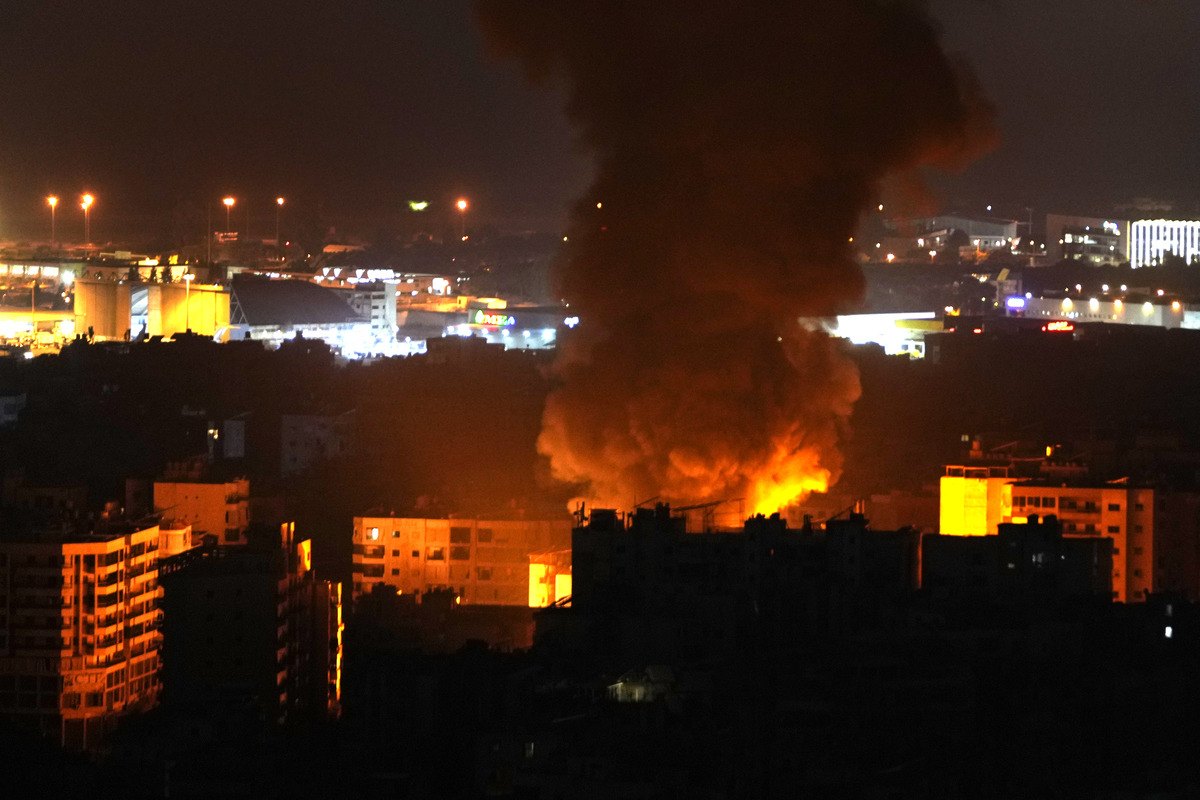Over the weekend, Israel intensified its air operations in southern Beirut, launching strikes late Saturday and into Sunday. This uptick in assaults comes just before the one-year mark since devastating attacks by Hamas, which ignited a prolonged and destructive conflict in Gaza and heightened tensions along Israel’s northern border.
The Israeli Defense Forces (IDF) reported on Sunday that their air force executed “targeted strikes” aimed at Hezbollah weapons storage facilities and related infrastructure in and around Beirut.
This action follows a week of ground operations in southern Lebanon, escalating after nearly a year of reciprocal fire between Israel and Hezbollah. The latter has consistently targeted northern Israel, aligning their efforts with Hamas.
The IDF reiterated its commitment to warning local civilians ahead of strikes, asserting that Hezbollah has strategically positioned its military assets “in the heart of downtown Beirut.”
Witnesses described the situation as intense, with “massive consecutive strikes” reported during the early hours of Sunday. Lebanon’s National News Agency noted over 30 strikes on the southern suburbs, dubbing it the “most violent night” since Israeli operations commenced.

AP Photo/Hussein Malla
The conflict with Hamas escalated dramatically after the group’s unprecedented assault on southern Israel on October 7, 2023, resulting in approximately 1,200 Israeli fatalities and around 250 hostages captured in Gaza.
Following the attacks, Israel declared war on Hamas, conducting extensive ground and air offensives in Gaza, which has raised significant humanitarian concerns for the territory’s two million inhabitants. As of now, Hamas health officials report over 41,000 fatalities in Gaza since the commencement of Israeli military efforts.
Recent tensions between Israel and Hezbollah have also surged, causing substantial displacement for communities on both sides of the border. Israel initiated “Operation Northern Arrows” on October 1, characterized by “limited, localized, and targeted ground raids” into southern Lebanon.
So far, the IDF has confirmed the deaths of nine Israeli soldiers during operations in southern Lebanon, marking the first significant military encounter since Israeli forces withdrew after the 2006 war.
The Lebanese Health Ministry confirmed that Saturday’s strikes resulted in 23 fatalities and 93 injuries. The IDF also announced the death of Khacher Ali Toil, a Hezbollah company commander, in recent airstrikes, with two other operatives eliminated earlier this week.
On Sunday, IDF spokesman Lieutenant Colonel Avichay Adraee urged residents of over two dozen villages in southern Lebanon to evacuate immediately and head north of the Awali River—located over 30 miles from the Israeli-Lebanese border.
Reports from Reuters indicated that an Israeli strike on a Palestinian refugee camp near Tripoli killed a Hamas member along with his family. Additionally, the IDF reported the deaths of Muhammad Hussein Ali al-Mahmoud and Said Alaa Naif Ali, linked to Hamas’ military operations.
Israeli Defense Minister Yoav Gallant stated that more measures were in the pipeline for Hezbollah, asserting that the group continues to face significant losses. Notably, Hezbollah leader Hassan Nasrallah was killed over a week ago, following bombings in southern Beirut. Reports suggest his potential successor, Hashem Safieddine, has been unreachable since an attack last Friday.
“We have more surprises in store, both executed and upcoming,” Gallant remarked, signaling ongoing operations against the militant group.
